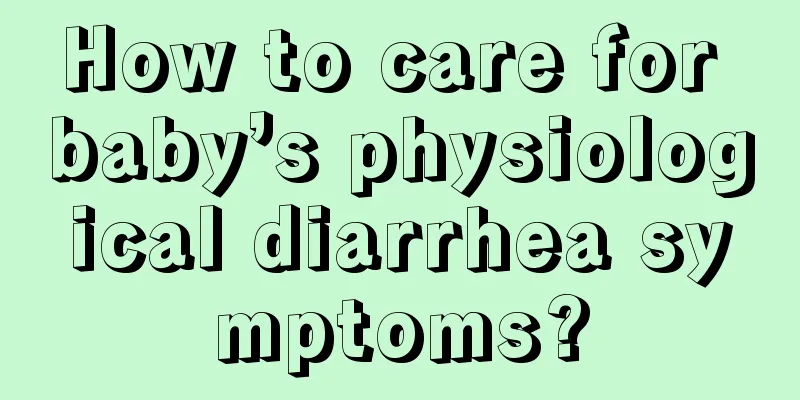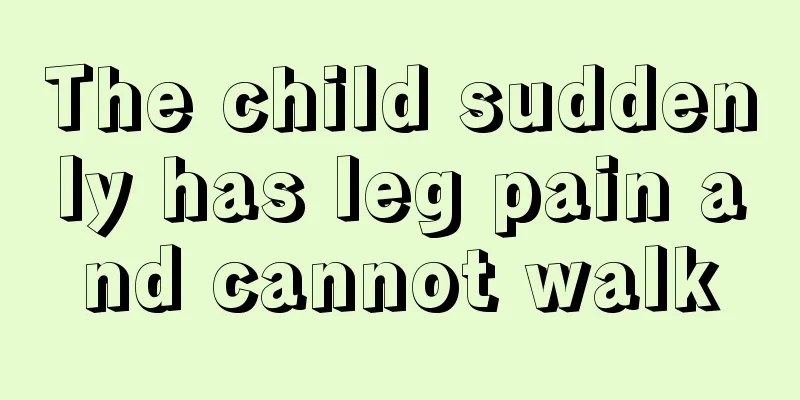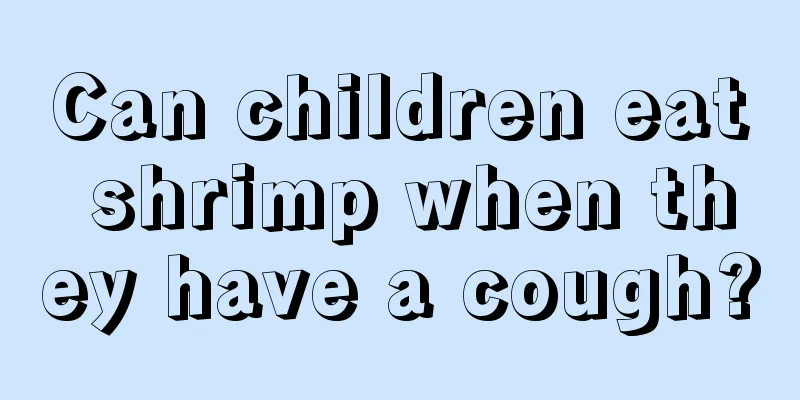Symptoms of children sweating at night

|
It is common for babies to sweat during sleep, and it is not always a symptom of weakness or illness. Many parents believe that their children’s constant sweating is due to their weak constitution. In fact, a considerable number of children suffer from physiological hyperhidrosis. Physiological hyperhidrosis is more common in the head and neck, often occurring within half an hour after falling asleep, and sweating stops in about an hour. Symptoms of children sweating at night Symptom 1: The baby is sweating profusely when just falling asleep or about to wake up. Expert reminder: It can be said that it is normal for most babies to sweat at night. However, if you are sweating profusely and have other symptoms of discomfort, you should pay close attention, strengthen care, and go to the hospital for examination and treatment if necessary. For example, if a baby has a square head, late teething, or late closure of the fontanelle, he or she may be suffering from rickets. Symptom 2: The baby is irritable before going to bed at night, and his body becomes dry and his cheeks become red after falling asleep. His breathing becomes rapid, and his pulse rate increases to more than 110 beats per minute. Experts warn: This indicates that the baby is about to have a fever. You should pay attention to whether your baby has cold symptoms or diarrhea symptoms, and also make sure to keep him hydrated. If the baby really has symptoms of fever, physical cooling methods such as alcohol wiping should be adopted. Symptom three: The baby cries while sleeping, often shakes his head and scratches his ears, and sometimes has a fever. Experts warn: The baby may be suffering from otitis externa, eczema or otitis media. You should check the baby's ear canal for redness or swelling, and whether there are red spots on the skin. If so, send the baby to the hospital for diagnosis and treatment in time. Symptom 4: The baby's limbs shake while sleeping. Experts remind: This is generally caused by excessive fatigue during the day, so there is no need to worry. It should be noted that it is a normal reaction for babies to tremble when they hear loud noises while sleeping. On the contrary, if they have no reaction and like to sleep normally, be careful that they may be deaf. Symptom 5: The baby keeps chewing after falling asleep. Experts warn: The baby may have ascariasis, or may have eaten too much during the day and have indigestion. You can go to the hospital for a check-up. If it is ascariasis, you can use special anthelmintics for babies to eliminate it. If ascariasis is ruled out, you should arrange the baby's diet reasonably. Symptom 6: The baby's fingers or toes twitch and swell after falling asleep. Experts remind: At this time, parents should carefully check the baby's fingers to see if they are entangled with hair or other fibers, or if there are signs of mosquito bites. Symptom 7: The baby cannot sleep soundly and often tosses and turns. Experts remind: In fact, it is quite common for babies to roll over in bed after falling asleep. Sometimes an uncomfortable quilt or a quilt that is too thick will affect the baby's sleep quality. Some parents are afraid that their children will feel cold when they sleep, so they let them sleep with their clothes on. The children feel uncomfortable and roll around. Some parents are always worried that their children do not eat enough, so they let them eat a lot before going to bed at night. As a result, the children's stomachs always feel bloated and uncomfortable after going to bed, so they cannot sleep well. Symptom 8: Babies often cry suddenly and loudly after falling asleep. Many times, children sweat while sleeping because they drink milk, malted milk or eat chocolate before going to bed, which can also cause sweating. Some parents give their children milk, malted milk, etc. before they go to sleep. After the child falls asleep, the body produces a large amount of heat, which is mainly dissipated through sweating through the skin. In addition, too high room temperature or excessive warmth can also cause children to sweat while sleeping, which are all physiological sweating. |
<<: Introduction to the characteristics of boys entering puberty
>>: Reasons for children sweating while sleeping
Recommend
How to educate a picky eater
There are always foods that people don’t like to ...
What are the symptoms of attention deficit disorder?
Children's attention is very important during...
What is the best way to supplement children's eyes?
In life, we often see some children wearing myopi...
Spring health care methods for children
During the Spring Festival, not only adults but c...
Baby has diarrhea and yellow foam
It is very important to check whether the newborn...
Why do children not grow taller?
Height is a very important thing for everyone. Ev...
How to improve children's immunity?
Every parent hopes that their child is stronger a...
How many years should children with purpura nephritis be treated?
Purpura is a disease that is quite harmful to the...
How to educate a crying child
I believe many parents have had similar experienc...
What medicine should I use for ringworm on my child's face?
When a skin condition such as ringworm occurs in ...
Introduction to Child Development Indicators
In fact, children are at the age of growing up. I...
Can newborns use night lights?
We all know that newborns live in the amniotic fl...
How long can vaccinations be delayed?
Getting vaccinations is a very beneficial and imp...
Reasons why premature babies do not gain weight
For newborns, weight is the most direct factor th...
Treatment of large gaps between baby's front teeth
The birth of every new life will make our parents...









